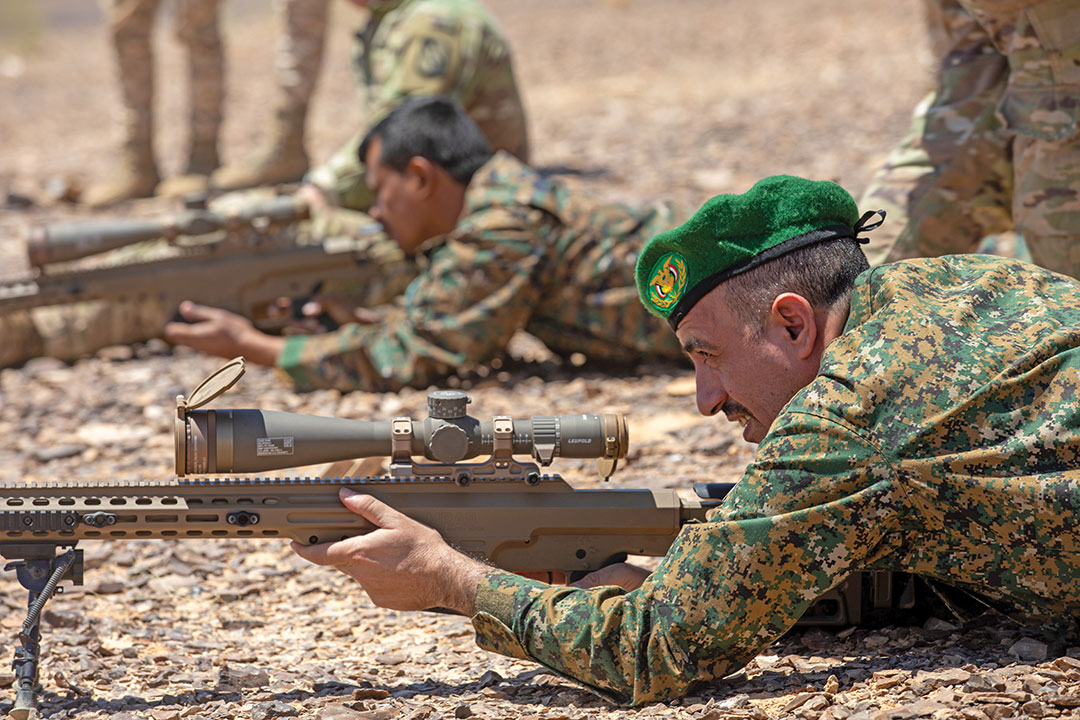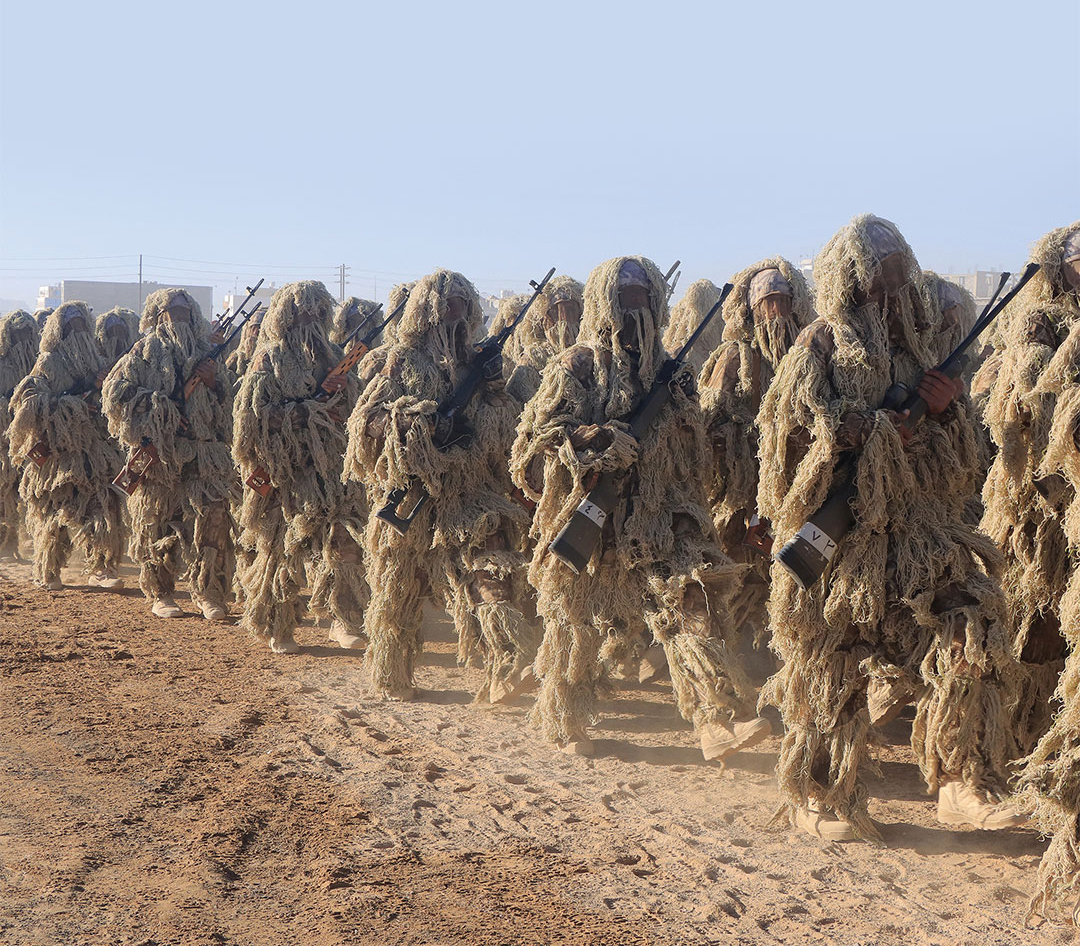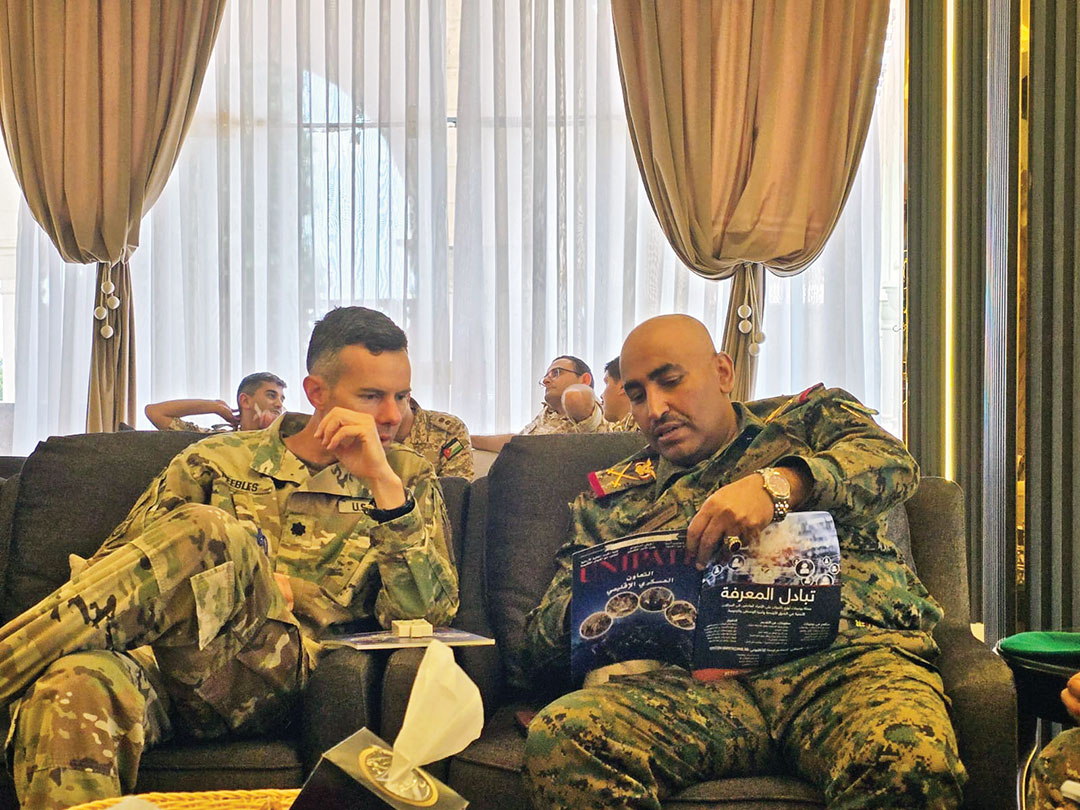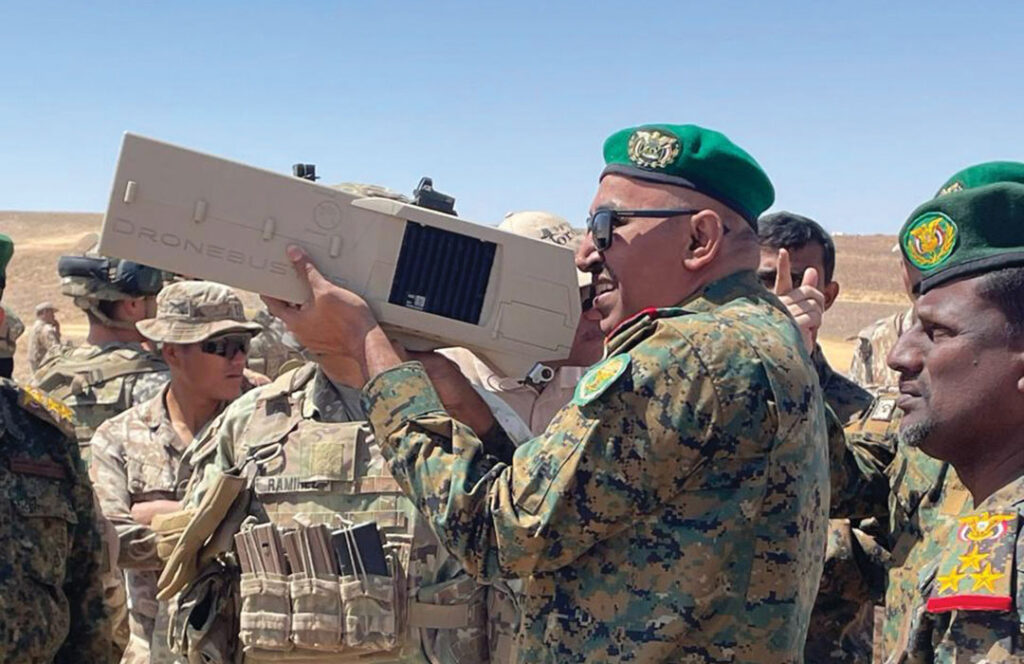Threatened by terrorist organizations trying to gain a foothold on the coasts of the Red Sea and the Indian Ocean, Yemen created the Special Operations Forces to foil the schemes of bad actors intent on destabilizing the country.
To lead these specialized military units, the country elevated one of its most highly skilled commanders. Maj. Gen. Ismail Hassan Abdullah Zahzouh, who began his career as a Yemeni Air Force officer, has assumed this important role to safeguard the country during the lengthy civil war provoked by the Iran-backed Houthis.
“Special Operations Forces have been able to reduce the scope of international threats posed by terrorist organizations stemming from Yemen’s position as a transit and export hub for terrorists,” Maj. Gen. Zahzouh said. “The size of terrorist organizations has been curtailed as a result of operations carried out by Special Operations Forces together with Joint Yemeni Forces and our Arab Coalition brothers targeting their hideouts and arresting a number of their members.”
Missions over the years have included eliminating terrorist cells, capturing their leaders, and fighting bandits and smuggling that supports, finances and equips extremist violence.
“The role of Special Operations Forces is pivotal, because they help to dry up sources of funding for the Houthi terrorist group by combating arms and drug trafficking — two of their key financial backers,” Maj. Gen. Zahzouh added.

Born in Hudeidah, Maj. Gen. Zahzouh graduated from the Yemeni Air Force and Defense Academy and furthered his classroom studies by acquiring a master’s degree and working toward a doctorate at the Institute of Arab Research and Studies in Egypt. As part of his studies he took courses in international arbitration and conflict resolution, subjects relevant to a country suffering from civil war.
He advanced through the Yemeni Special Operations Forces, starting as head of the Control and Inspection Division in 2011. In 2013, he was appointed acting chief of operations of the First Mountain Infantry Brigade of the Special Operations Forces. His success in that role earned him a promotion several months later to command the Intelligence and Security Division.
He rose to become a brigadier general in 2015 — which coincided with his appointment as head of operations of the country’s 5th Military Region — and advanced a year later to the rank of major general.
In 2018, he assumed overall command of Special Operations Forces. His achievements on the job earned him membership on the Republic of Yemen’s Supreme Military and Security Committee.
It’s hard to ignore the note of frustration when Maj. Gen. Zahzouh recalls how Yemen’s success at uprooting terrorist groups like Al Qaida was disrupted by the Houthi militia’s seizure of power in Sanaa in 2014.
Before the Houthi uprising, most terrorist leaders in Yemen had been eliminated or arrested and imprisoned. The country’s Political Security Organization Prison alone held 450 members of Al-Qaida. That all ended when the Houthis released most of those prisoners with instructions to conduct terrorist attacks against the legitimate Yemeni government.

As a result of assaults from the Houthis and their subordinates, Yemen has been thrown into a humanitarian crisis with few parallels in the world. The past year has seen a surge in Houthi attacks on international shipping in and near the Red Sea to further their agenda and that of the Iranian regime.
“The Houthis have nurtured and encouraged all forms of terrorism and worked hard to improve their tactics and expand their reach to cause the greatest possible harm, domestically and overseas, further damaging Yemen’s reputation,” Maj. Gen. Zahzouh said.
“Although some initial manifestations of violence and terrorism existed previously, the presence of certain terrorist elements was encouraged by the Houthis, as was the transformation of previously existing banditry and killing into terrorist operations through the exploitation of religion and the nurturing of unfamiliar ideologies backed by foreign funding.”
Yemen’s Special Operations recruits are carefully selected. They must be unmarried men no older than 22, free of physical and mental disabilities, and possess a clean criminal record. In a country in which political movements have led to societal splintering, these troops must reject party labels. Aside from acquiring combat skills common to every Soldier, Special Operations Forces members receive specialized training in fields such as counterterrorism and urban clearance operations.
Because Yemen’s legitimate government lost much of its military infrastructure when the Houthis launched their uprising, Yemeni Special Operations Forces often rely on local partners and cooperation with joint and Arab coalition forces for transport, encrypted communications and air support.

Yemeni ARMED FORCES
That collaboration has allowed them to conduct critical missions to fight the smuggling of refugees from the Horn of Africa, operate behind enemy lines, and launch amphibious assaults on smugglers’ boats.
Maj. Gen. Zahzouh would like to see an expanded role for his units with more assistance from international partners. The need isn’t solely financial. He expressed a need for logistical support, new bases and equipment and increased training to allow his men to perform more complex missions.
“The Special Operations Forces are highly flexible, a quality made evident when participating in operations against terrorist groups,” he said. “Teams take turns moving between different combat positions and are deployed quickly to respond to sudden challenges in the shortest time possible.”

